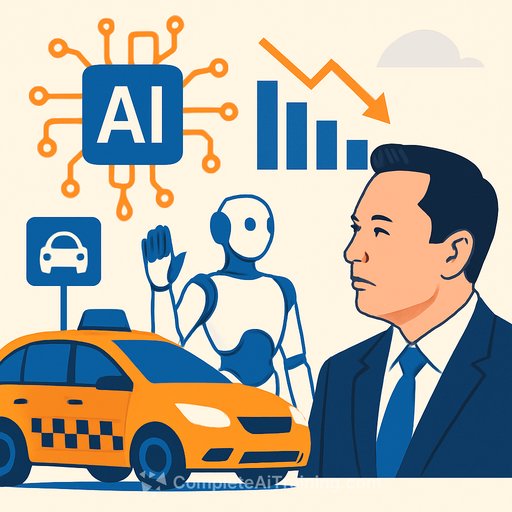AI strategy in the UK: CTOs and CDOs take the wheel as firms push for fast ROI
UK and Ireland enterprises are doubling down on AI. Slalom's third AI Insights Survey shows CTOs and CDOs are leading the organisational redesign while HR plays a smaller role. Confidence is high: most leaders expect measurable returns within two years, even as workforce and legacy tech issues threaten to slow progress.
What the data says
- Nearly all firms plan to maintain or increase AI spend in 2026.
- 62% expect ROI within two years.
- 94% report workforce challenges; about half still run core apps on legacy systems.
- 96% are comfortable with AI augmenting leadership and decision-making.
- Only 42% say AI consistently improves output quality today.
- 64% are creating or planning new AI roles (six points above the global average).
- Top barriers: ineffective training (41%), employee distrust/job security concerns (40%), insufficient tool investment (35%), and weak leadership commitment or strategy (30%).
CTOs/CDOs are steering the redesign
Responsibility for AI-led organisational change is shifting. 55% of global organisations place it with CTOs/CDOs, while only 19% name HR leaders as primary drivers. CEOs are the most optimistic on impact (51% "very positive"), compared with 34% of Chief People/HR Officers. Executives overall are more upbeat than mid-level leaders (42% vs 36%).
"This is not the beginning of AI disruption. It's the endgame of its first act," said Amy Loftus, Chief Customer Officer at Slalom. "Global executives report that by 2030, most AI-driven transformation will be complete. The final surge of change across roles, workflows, and systems will peak between 2026 and 2028."
AI's role: streamline work, support judgement
Leaders see AI as an accelerator for repetitive, manual work more than a replacement for strategic decision-making. Comfort with augmentation is high, but quality is inconsistent without process redesign and employee engagement. The gap isn't the model-it's adoption, workflow fit, and clear accountability.
Skills are resetting
Technical and cognitive skills are moving to the front of the queue. Leaders rank critical thinking and problem solving (52%) highest, followed by creativity (41%), digital literacy (40%), resilience/adaptability (32%), and cognitive flexibility (32%).
Communication is cited by 21% and empathy by 17%. Meanwhile, 84% of Gen X and Millennial contributors globally are experimenting with AI tools in their own time to future-proof their careers. That curiosity is an asset-if companies channel it with structure and standards.
The blockers you can control
Two issues limit returns: skills gaps and legacy stacks. You can fix both with focused investment and tight execution. As Caroline Grant, Slalom UK's Senior Managing Director, notes: "The urgency for workforce re-organisation and upskilling is ramping up… As AI moves from the back office to a boardroom priority, the research reveals shifts in responsibility and skills."
Action plan for Executives and HR
- Set ownership: make a single accountable executive (CTO/CDO) for AI value creation, with HR as co-owner for workforce transformation.
- Stand up an AI operating model: portfolio governance, funding, guardrails, and a cadence for change and adoption.
- Prioritise data and platform upgrades tied to near-term use cases; retire blockers that slow access to clean, secure data.
- Run targeted training by role and proficiency; certify critical teams and reward real usage, not attendance.
- Address trust directly: publish role pathways, reskilling offers, and internal mobility options backed by clear metrics.
- Embed AI product owners and data stewards in business units to close the gap between tech and operations.
- Measure ROI monthly: time saved, error rates, quality scores, and revenue lift; stop pilots that stall and scale what works.
- Governance from day one: model risk controls, privacy, retention, and bias testing; involve legal and security early.
Who was surveyed
Findings are based on Slalom's third AI Insights Survey of 2,000 C-suite and senior leaders, including 417 from the UK and Ireland. The survey focused on companies with annual revenues above USD $500 million (many above $10 billion) and was administered by GLG Insights.
Learn more about the organisations involved: Slalom and GLG Insights.
Upskilling: move fast, train with intent
If skills are the limiter, train with precision. Build learning paths by role, verify proficiency, and tie completion to real project work.
For structured, role-based options, explore: AI courses by job role and popular AI certifications.
Your membership also unlocks:










